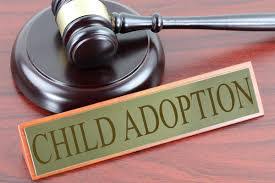
Adoption laws in the US vary from state to state. If you’re an intending parent seeking to adopt or you wish to give up a child, it’s best to familiarize yourself with the adoption laws in your state.
In this article, we’ll give you a basic overview of the laws in Pennsylvania that may affect your adoption process. However, if you have legal concerns about adoption, it’s best to consult family lawyers in Norristown, PA.
Who May Adopt
The law on who may adopt in Pennsylvania is one of the least restrictive across the country. There’s no minimum or maximum age limit for anyone who wishes to adopt. Even minors may adopt in certain circumstances, which is common when they adopt a sibling.
There’s also no limit to marital status, as singles are allowed to adopt. A married couple who wants to adopt will need to do so together unless one party gives the other consent to adopt alone. Agencies who handle adoptions or even birth parents may also have their preferences.
Who May be Adopted
The law is also not restrictive as to who can be an adoptee in Pennsylvania. It means that both adults and children are adoptable.
Whose Consent is Needed

Generally, birth parents must consent to adoption by terminating their parental rights before a child can be eligible for adoption. A biological mother will have to wait 72 hours after birth to give such consent, signed by two witnesses. Biological fathers can give their consent at any time before the child is born.
However, certain circumstances may make a child eligible for adoption without parental consent. Such cases include when a court involuntarily terminate a parent’s rights due to abuse or lack of care. Additionally, adults who are eligible for adoption and children older than 12 must consent to their adoption.
Laws Regarding Birth Parent’s Expenses
It’s essential to note that it’s unlawful for an adoptive parent to pay for a birth parent’s living expenses. It’s also illegal to give gifts or exchange favors in exchange for the child. However, the law permits adoptive parents to pay for the following:
- Medical and hospital expenses related to birth mothers prenatal care, birth care, and postnatal care.
- Medical, hospital, and foster care expenses of the child before the issue of the adoption decree
An itemized account of the adoptive parent’s expenses will undergo a review in court. A judge will provide appropriate relief for expenses that are excessive or unnecessary. It would help if you discussed with family lawyers Norristown PA, before making any payments related to adopting a child.
Pre-placement and Post-placement Requirements
Before you can adopt a child in Pennsylvania, you must complete a pre-placement home study. It involves an assessment of your ability to provide a stable and nurturing home for the child. The home study will evaluate the family’s finances, medical histories, socio-cultural and religious background, criminal records, among other criteria.
After the child has been placed in your care, the home study process continues with post-placement assessments. These visits are to determine how well the child is adapting to the new home and any issues to be addressed.
Conclusion

Pennsylvania adoption laws are not as strict as those in some states. However, it’s advisable to work with family lawyers in Norristown, PA, who’ll guide you through the process.







